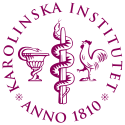HAUPTMENÜ
AWARDS
Forschergeist gefragt: 14. Novartis Oppenheim-Förderpreis für MS-Forschung ausgelobt
FernstudiumCheck Award: Deutschlands beliebteste Fernhochschule bleibt die SRH Fernhochschule
Vergabe der Wissenschaftspreise der Deutschen Hochdruckliga und der Deutschen Hypertoniestiftung
Den Patientenwillen auf der Intensivstation im Blick: Dr. Anna-Henrikje Seidlein…
Wissenschaft mit Auszeichnung: Herausragende Nachwuchsforscher auf der Jahrestagung der Deutschen…
VERANSTALTUNGEN
Wichtigster Kongress für Lungen- und Beatmungsmedizin ist erfolgreich gestartet
Virtuelle DGHO-Frühjahrstagungsreihe am 22.03. / 29.03. / 26.04.2023: Herausforderungen in…
Pneumologie-Kongress vom 29. März bis 1. April im Congress Center…
Die Hot Topics der Hirnforschung auf dem DGKN-Kongress für Klinische…
Deutscher Schmerz- und Palliativtag 2023 startet am 14.3.
DOC-CHECK LOGIN
Microneedle patch delivers antibiotics locally in the skin
Stockholm, Sweden (May 10, 2021) — MRSA skin infections are often treated with intravenous injection of antibiotics, which can cause significant side effects and promote the development of resistant bacterial strains. To solve these problems, researchers at Karolinska Institutet in Sweden are developing a microneedle patch that delivers antibiotics directly into the affected skin area. New results published in Advanced Materials Technologies show that the microneedle patch effectively reduces MRSA bacteria in the skin.
MRSA (methicillin resistant Staphylococcus aureus) skin infections are potentially lethal, especially in patients with compromised immune systems. Vancomycin is one of the main treatments and is given as an intravenous injection. The reason the antibiotic is not given locally is because of its low ability to penetrate the skin. It is not given orally either because of poor absorption through the gut. The problem with systemic administration is that it often results in significant side effects. Moreover, even when relatively high doses are administered, the local concentration of vancomycin in the skin remains low, which may promote the development of antibiotic resistant strains. Thus, there is a clinical need for local delivery of vancomycin to the skin.
„We have addressed this by using microneedle patches that consist of miniaturised needles made from a polymer that is loaded with the drug,“ says Jill Ziesmer, PhD student at the Department of Microbiology, Tumor and Cell Biology, Karolinska Institutet and first author of the study. „Through an innovative microneedle design we could efficiently control the drug amounts delivered into the skin.“
The patch is placed on the skin at the site of infection. The barely visible microneedles are so small that they do not reach the pain receptors, which makes the treatment relatively painless. The microneedles‘ ability to penetrate the skin was studied in skin tissue from piglets and excised human skin. The results show that the drug was effectively delivered into the skin, and most importantly, significantly reduced the MRSA bacterial population.
„If this drug delivery device reaches the clinics, it has the capacity to transform the way skin infections from potentially lethal bacteria are treated with drastic improvements in the quality of life of patients,“ says Georgios Sotiriou, principal researcher at the Department of Microbiology, Tumor and Cell Biology, Karolinska Institutet and last author of the study.
The researchers will now evaluate the performance of microneedles in animal models of MRSA skin infection. The next step is to further develop the product so that it exerts antimicrobial activity through multiple modes of action in order to improve efficacy.
Microneedles were voted one of the top 10 emerging technologies by World Economic Forum in 2020. They are already in clinical use for administering vaccines and there are many ongoing clinical trials for other uses such as treating diabetes, cancer and neuropathic pain.
„Microneedles for delivery of antibiotics have only been studied recently, however, the successful application of microneedles in other areas gives hope that antibiotic microneedles might open new frontiers in skin infection management,“ says Georgios Sotiriou.
—
The research has received funding from the European Research Council (ERC), NordForsk, the Faculty Board at Karolinska Institutet, the Swedish Research Council, the Torsten Söderberg Foundation and the Swedish Foundation for Strategic Research. The authors declare no conflict of interest.
Publication
„Vancomycin-Loaded Microneedle Arrays against Methicillin-Resistant Staphylococcus Aureus Skin Infections“. Jill Ziesmer, Poojabahen Tajpara, Nele-Johanna Hempel, Marcus Ehrström, Keira Melican, Liv Eidsmo, Georgios A. Sotiriou. Advanced Materials Technologies, online 5 May 2021, doi: 10.1002/admt.202001307.
Karolinska Institutet, 10.05.2021 (tB).
Schlagwörter: Infektiologie, MRSA


